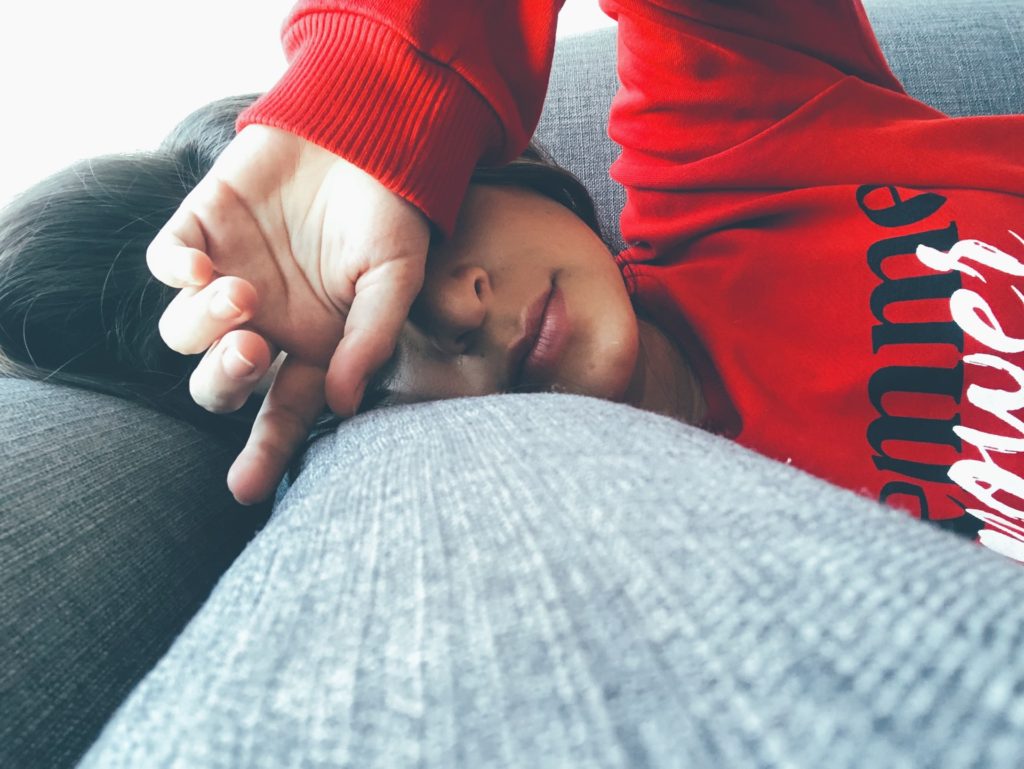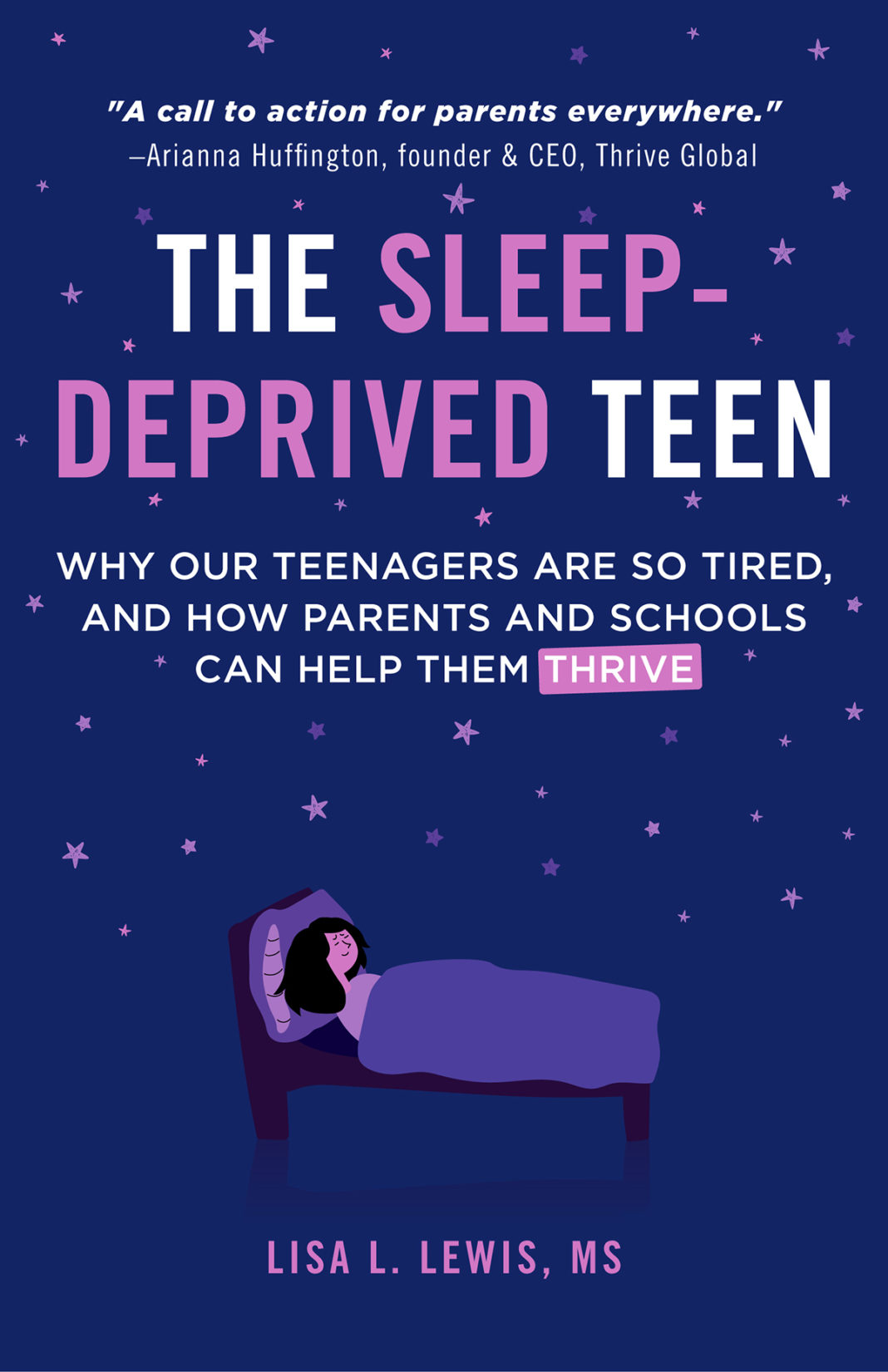Teens today are overloaded, strapped for time, and often asked to wake far earlier than they should because of school start times. It’s no surprise then that they’re sleep-deprived, with far-reaching consequences.
Mother’s Day Magazine talks with parenting journalist Lisa L. Lewis, about her new book, The Sleep-Deprived Teen. Lisa’s book provides a roadmap for parents to more (and better) sleep for their teens—and even themselves.
The Sleep-Deprived Teen is available from Amazon, Barnes & Noble, and Bookshop.org. For more information, please visit www.lisallewis.com.
How did the idea for this book come about?
The Sleep-Deprived Teen was seven years in the making! My interest in the topic dates back to 2015, which is when my son started his freshman year of high school. At that point, our local high schools started at 7:30 a.m. When I started looking into why this was the case, I quickly realized this was an issue larger than just our local community, and that there was already a large body of research recommending later start times for adolescents.
As a parenting journalist, I’ve found that so many of the topics I write about have stemmed from my experience as a parent. In this case, I started researching and writing about the issue, and one of my op-eds, which ran in the Los Angeles Times in September of 2016, prompted one of our state senators to introduce a state bill about school start times. I ended up being deeply involved throughout the 2 ½ year process it took to get that bill signed into law. As an outgrowth of that and the many connections I’d made with leading sleep researchers, I decided to write a book on the topic. It’s basically the book that I wished I’d had back when my son was starting high school.
How much sleep should teens be getting?
Up until age 18, teens should be getting 8-10 hours of sleep a night. (After that, it falls to 7-9 hours.) These are the recommendations from the National Sleep Foundation. But the reality is that most teens fall far short of that: 2019 data from the CDC found that only about one in five high-schoolers hits even the minimum (eight hours). That means most teens are chronically sleep-deprived, and that really has far-ranging implications. But what’s really critical as part of this is the role that school start times play. When schools start too early in the morning (meaning earlier than 8:30 a.m., according to the American Academy of Pediatrics), it cuts into teen sleep.
What happens when teens don’t get enough sleep? Basically, everything is harder when they’re sleep deprived—that’s true for all of us, but it’s really important for our teens. They have so much going on in their lives, and they’re going through tremendous changes. Not getting enough sleep affects their ability to learn, it makes them more dangerous on the road, it makes them more prone to substance use and other risky behaviors … and that’s not even looking at the mental-health piece, which is huge. Teens already are struggling with depression, anxiety, and suicidality, and being sleep-deprived exacerbates these mood disorders. As a parent, I think it’s pretty scary to contemplate.
What’s the impact on parents’ emotional health when teens are sleep-deprived?
Great question! Getting enough sleep helps boost emotional resiliency. When parents and teens are sleep-deprived, it’s pretty much the opposite scenario, because it heightens the intensity of emotions. In fact, one study found that teens who got enough sleep reported having fewer arguments with their parents.
In your book, you talk about how too-early school start times are a main driver of teen sleep deprivation. Can you tell us more about why that is?
When teens hit puberty, their internal clocks shift later, which means they’re not sleepy until later at night. Specifically, melatonin begins to be released later at night and doesn’t recede until later in the morning.
Teens who have to get up too early in the morning for school are often being forced to wake before they’ve gotten the recommended 8-10 hours of sleep. In fact, establishing healthy start times is really a public policy issue, given the impact that school start times have on adolescent sleep.
What are some other reasons why teens are so sleep-deprived?
Probably the biggest additional factor is the reality that most of our teens are on overload. When you add up all of the hours they spend in school, plus doing homework, plus participating in sports or other extracurriculars, plus perhaps holding down a job, you can see how quickly all of those hours add up. And they need a bit of downtime in the mix too! So, they may not even have the opportunity to get 8-10 hours of sleep.

What’s a good time for school to start? How many schools nationwide actually start at that time?
The recommendations from the American Academy of Pediatrics (AAP) are that middle and high schools should start no earlier than 8:30 a.m. Unfortunately, there isn’t a central database of school start times. But, based on the most recent data I’ve seen (from the National Center for Education Statistics), in 2017-2018, the average start time for U.S. public high schools was 8 a.m. In some states, though, it was far earlier than that: 7:30 a.m. in Louisiana and 7:39 a.m. in Connecticut, for example.
That’s why our new law, which just went into effect on July 1, is so significant: it’s the first law of its kind in the country and sets minimum start times for middle and high schools. The fact that this new law was sparked by my op-ed is amazing and unexpected.
What can parents do to advocate for later school start times?
I actually delve into this in detail in The Sleep-Deprived Teen, because there are a number of ways that parents can make a difference. As a starting point, I think it includes helping educate others about why teen sleep is so important and connecting with other parents who want to get involved. There’s a terrific group, Start School Later, that’s been around since 2011 and is a great resource—I actually started a local chapter in my community back when I first got involved in the issue.
And be persistent! The reality is that people are often reticent about making a change—even when it’s clearly needed—because it requires adjustments. But we know how essential sleep is for our teens, and the research shows that later start times really do help them.
What are some of the ways parents can help their teens get more sleep?
My overarching message is to make sleep a priority—and that means for ourselves as parents too. Also, we can’t really talk about sleep without talking about technology and social media—I ended up devoting an entire chapter to it because there’s so much to say. But one takeaway for parents is to establish realistic tech use guidelines at home. That also involves recognizing that being on social media is a key part of our teens’ social worlds. That said, though, the challenge is that technology was designed to be immersive. Being embroiled in social media interactions late at night isn’t going to help your teen drift off to sleep. In fact, the official recommendations from the AAP are to get off tech an hour before bedtime. Even a simple step like turning off notifications can be a big help.

Articles are for informational and self-help purposes only. Articles are not meant to provide specific advice for your specific situation. They should not be treated as a substitute for psychological, behavioral health, medical, financial, relationship, or career advice or as a substitute for consultation with a qualified professional. Nothing in any Article is intended as a recommendation or endorsement of any products, services, healthcare provider, opinions or other information.
The opinions expressed by the author and those providing comments are theirs alone and do not reflect the opinions of Mother’s Day Magazine. Mother’s Day Magazine is not responsible for the accuracy of the information supplied by the author. The Terms and Conditions are incorporated herein.

